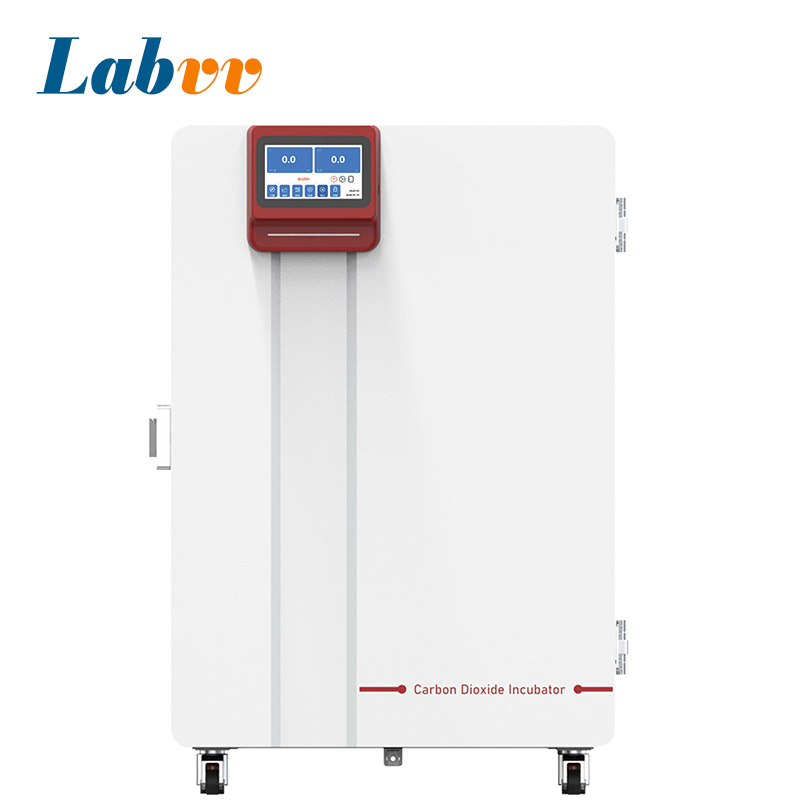In-Depth Guide to CO₂ Incubators: Principles, Applications, and Smart Buying Tips
1. Introduction
A CO₂ incubator is an essential instrument in modern cell culture research. By precisely controlling temperature, humidity, and carbon dioxide (CO₂) concentration, it creates a stable and reproducible environment for sensitive biological samples—especially mammalian cells commonly used in medical, pharmaceutical, and biotechnology laboratories.
Whether conducting cell biology studies, drug screening, or stem cell experiments, a reliable and high-performance CO₂ incubator is crucial for ensuring consistent and accurate results. This guide provides a detailed overview of how CO₂ incubators work, their key applications, and expert recommendations for selecting the right model for your laboratory.
2. Basic Principles of a CO₂ Incubator
A CO₂ incubator maintains a controlled microenvironment by regulating three critical parameters:
1. Temperature
Typically set at 37°C, simulating the physiological temperature of mammalian cells.
2. CO₂ Concentration
Most incubators maintain 5% CO₂ to stabilize the pH of culture media.
3. Humidity
Maintained at ≈95% to prevent culture media evaporation.
Modern CO₂ incubators commonly use infrared (IR) CO₂ sensors, which offer higher accuracy, faster response, and better long-term stability compared with traditional thermal conductivity (TC) sensors.
3. How a CO₂ Incubator Works
To deliver a stable internal environment, a CO₂ incubator integrates multiple control mechanisms:
1. Temperature Regulation
Built-in heating elements and sensors maintain temperature uniformity. Some models include a fan-assisted airflow system to ensure even heat distribution.
2. CO₂ Concentration Control
IR or TC sensors continuously monitor CO₂ levels. When deviations occur, the system automatically injects CO₂ to maintain the set concentration.
3. Humidity Management
A water tray or steam generation system sustains high humidity, effectively minimizing culture medium evaporation.
4. Contamination Prevention
Advanced CO₂ incubators incorporate:
- HEPA filtration
- Copper or stainless-steel chambers
- High-temperature dry heat or moist-heat sterilization
- UV disinfection (in some models)
These features significantly reduce microbial contamination risk.

4. Applications of CO₂ Incubators
CO₂ incubators are indispensable in life science research and clinical laboratories. Common applications include:
• Cell and Tissue Culture
Ideal for cultivating mammalian cells for research, diagnostics, or therapeutic use.
• IVF Laboratories
Provides controlled conditions for embryo development.
• Cancer Research
Supports tumor cell cultivation for drug screening, gene expression studies, and pathway research.
• Stem Cell Research
Maintains undifferentiated stem cells or supports directed differentiation.
• Drug and Vaccine Development
Used for biological product development, viral culture, and vaccine production.
Additionally, CO₂ incubators are widely used in microbiology, virology, regenerative medicine, and immunology research.
5. How to Choose the Right CO₂ Incubator
When selecting a CO₂ incubator, consider the following key factors:
1. Capacity and Size
Choose a volume that fits both your lab space and your experimental throughput.
2. Sensor Type
IR sensors offer superior precision and stability compared with TC sensors.
3. Contamination Control
Look for models with:
- High-temperature sterilization
- HEPA filtration
- Antimicrobial internal chamber materials
4. Recovery Speed
Fast temperature, CO₂, and humidity recovery minimizes disruption after door openings.
5. Humidity System
A robust humidity control mechanism helps prevent media evaporation and sample dehydration.
6. User Interface & Alarm System
A clear digital display, real-time monitoring, data logging, and comprehensive alarms greatly enhance safety and usability.
7. Energy Efficiency
Models with optimized insulation and smart heating systems reduce long-term operating costs.
6. Product Recommendation: Labvv CO₂ Incubators
Among the many options available, Labvv CO₂ incubators stand out for their reliable performance, user-friendly design, and excellent value for money.
Key Features
- Precision Temperature Control
PID microcomputer system with direct-heat air-jacket technology ensures excellent uniformity and fast temperature recovery. - High-Temperature Sterilization (180°C)
Effective dry-heat sterilization eliminates bacteria and fungi without chemical residues. - High-Accuracy IR CO₂ Sensor
Dual-beam imported IR sensor delivers fast, precise, and stable readings—even under high humidity. - Advanced Clean Air System
Equipped with internal HEPA filtration and filtered gas inlets to ensure clean airflow. - Premium Stainless-Steel Interior
304 mirror-polished chamber with rounded corners for corrosion resistance and easy cleaning. - Smart Touchscreen Interface
7-inch HD display showing temperature, humidity, CO₂ concentration, and optional O₂ control. - Door Heating System
Prevents condensation and maintains interior stability. - Comprehensive Alarm Protection
Alarms for temperature, humidity, CO₂, O₂ (optional), and door abnormalities. - Flexible Interior Design
Removable shelves and racks allow customizable sample arrangements.
7. Conclusion
A CO₂ incubator is far more than a simple heating device—it is the core foundation of any cell culture workflow. Choosing the right incubator significantly improves experimental reproducibility, culture viability, and research success.
Whether you are advancing cell biology research, expanding drug development operations, or managing a clinical IVF laboratory, investing in a high-quality CO₂ incubator is a vital step toward achieving reliable and meaningful scientific outcomes.
If you need expert recommendations or high-performance CO₂ incubators for your laboratory, Labvv is ready to support you with professional solutions tailored to your research needs.
If you having any question, please feel free to Whatsapp Labvv.
